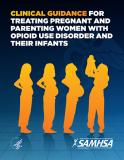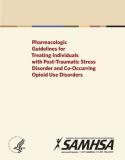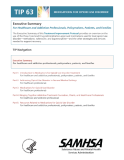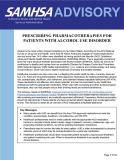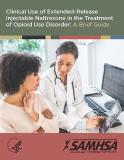
This guide informs clinicians about medications for opioid use disorder treatment, including side effects, drug interactions, and take-home doses. It discusses patient counseling, associated medical issues, hepatitis C evaluation, drug testing, and pregnant women.
Units per Product
Download
KAP Keys for Clinicians based on TIP 4
File Type: PDF
File Size: 831 KB



